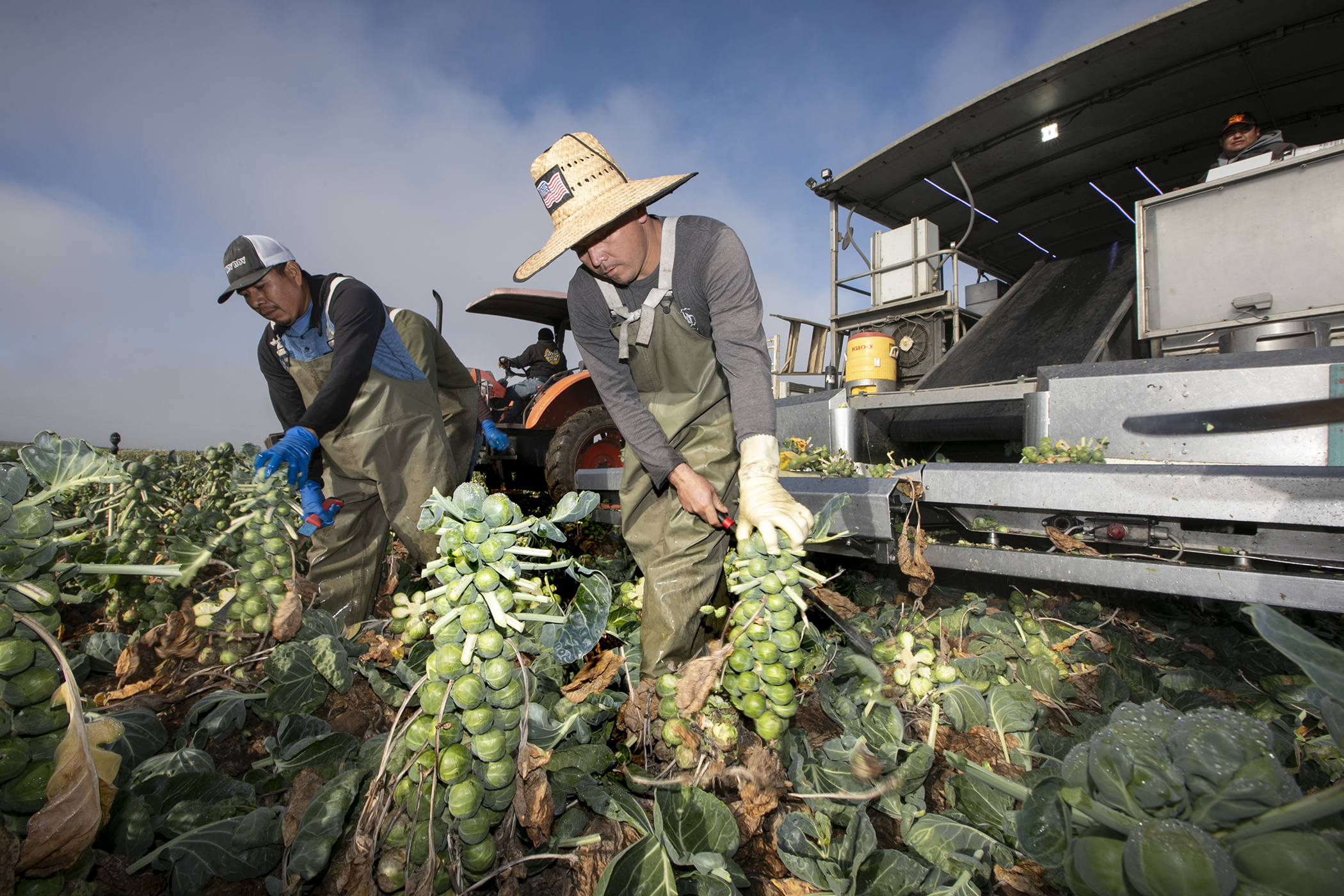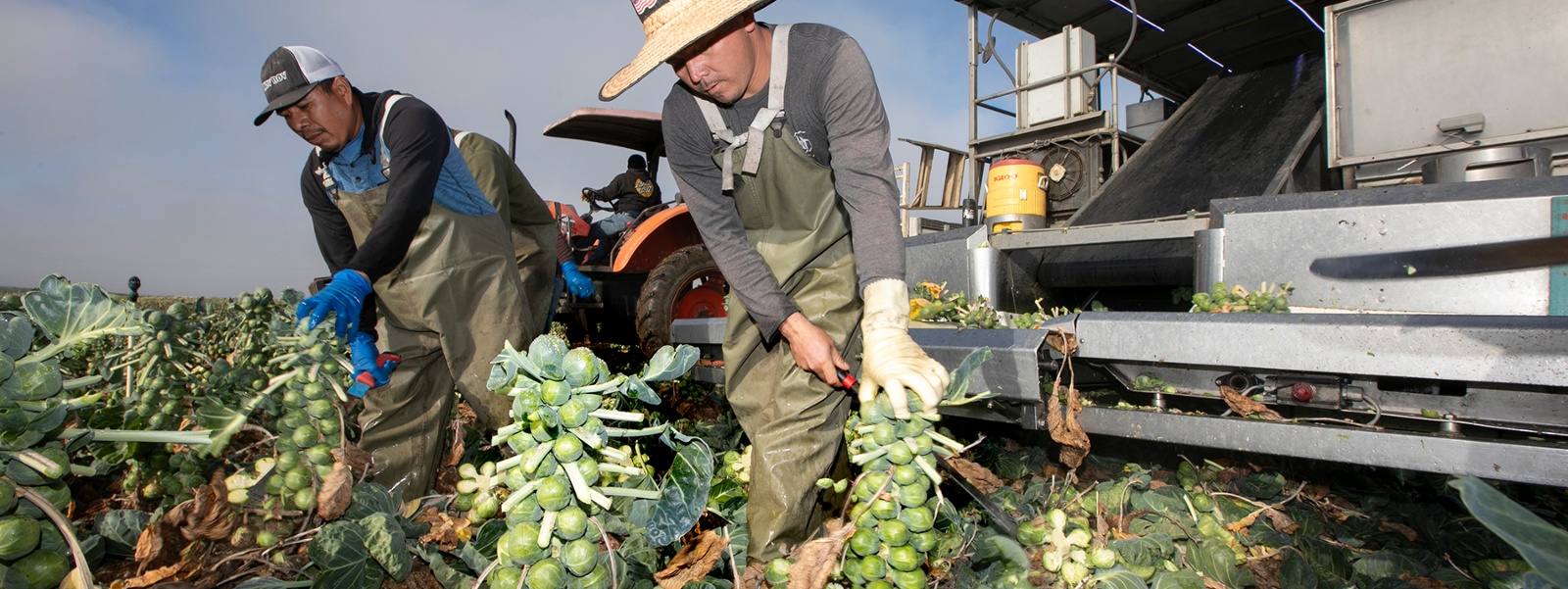Overtime tax credit bill a plus for farmers, workers

Farm employees harvest Brussels sprouts at a Monterey County farm. The California Farm Bureau encourages support for a bill that gives farm employers a tax credit for paying workers overtime.
Photo/Richard Green

By Bryan Little
When the California Legislature rewrote the overtime rules for agricultural employees in 2016, the California Farm Bureau warned policymakers their action would have serious, detrimental consequences for agricultural employees, their families and their rural communities. Unfortunately, those warnings proved prescient.
For decades, employees received overtime when they worked more than 10 hours in a workday for a maximum of six days in a workweek because of the highly seasonal nature of agricultural work. For most agricultural employees, work in the fields is available only a few weeks a year. Agricultural employees need to work when work is available to make up for the weeks after harvest and in the winter each year when farm work is unavailable.

Dr. Alexandra Hill of the University of California, Berkeley, found in 2023 that the change in agricultural overtime rules decreased employees’ weekly working hours and earnings—to the surprise of no one who warned policymakers back in 2016 about the likely impact of the change. (See related story, Research shows overtime law costs workers $100 per week.)
The price to an agricultural employer for each hour worked by agricultural employees after eight in a workday and 40 hours in a workweek went up by 50%—an increase agricultural employers cannot recover by simply raising the market price of what they grow. Unsurprisingly, California agricultural employers—who can’t control the cost of fuel, fertilizer, electricity, pesticides, seed and everything else they need to produce a crop—are trying to control one area of production cost they actually can manage.
Senate Bill 628, by state Sen. Shannon Grove, R-Bakersfield, will reimburse California agricultural employers for the cost of overtime premium wages (the “half” in “time and a half”) by claiming a credit for that cost from what they remit to the state for payroll taxes. Not a single dime of this tax credit will enrich California agricultural employers because an employer will not be able to claim the credit until overtime—and the straight hourly time that goes with it—have already been paid to employees.
Every dime an agricultural employer can claim under this tax credit will have already been paid to their employees—millions of dollars that will go straight to agricultural employees’ pockets that they will spend for gas and groceries, clothes and shoes for their kids and electricity to cool their homes this summer. Those dollars will be poured into struggling rural communities in California.
California farm employees will tell you the 2016 overtime policy change made it harder for farmworkers to work and earn. We know this because they tell the Farm Bureau members who employ them every day. SB 628 is a commonsense solution that ensures farm employees have more opportunities to earn and support their communities and families.
In Sacramento, policymakers like to talk about affordability—making it more affordable to live, work, start a business and create jobs in California. But the reality is that California is a difficult and expensive place to farm, and California farmers are challenged to compete with producers from other states and countries.
For nearly 20 years, researchers at California Polytechnic State University, San Luis Obispo, have tracked the cost of growing food in California. They found that for one lettuce producer in Monterey County, regulatory compliance costs have risen 63.7% since 2017 and a whopping 1366% since 2006. Regulatory costs now amount to $1,600 per acre, or 12.6% of production costs for this farmer. Meanwhile, the value for their lettuce increased only 0.37% from 2017 to 2024.
If we want to continue to grow food in California, with the highest labor standards, the most protective occupational safety and health standards, and the highest food safety standards in the world, this situation is unsustainable.
SB 628 gives California farmers an opportunity to put more money into the pockets of the people who are absolutely essential to growing the food that feeds California and the world.
In passing SB 628, the California Legislature can make an important stride to improve the sustainability of California agriculture, employees’ families and rural communities. By turning a new page, California can continue to be America’s and the world’s Salad Bowl for generations to come.
Stay updated at cfbf.com/sb628.
Bryan Little is director of employment policy for the California Farm Bureau and chief operating officer for the affiliated Farm Employers Labor Service. He may be contacted at blittle@cfbf.com.




